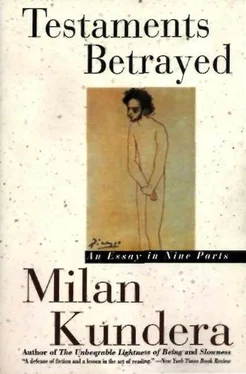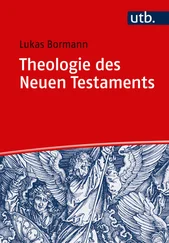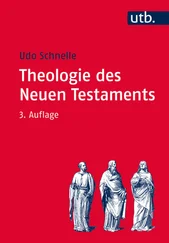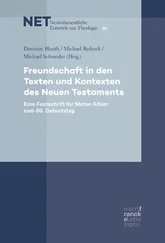The way Kafka's collected works were published in France shocks no one; it corresponds to the spirit of the time: "Kafka is to be read as a whole," the editor explains; "among his various modes of expression, none can claim greater worth than the others. Such is the decision of the posterity we are; it is an acknowledged judgment and one that must be accepted. Sometimes we go further: not only do we reject any hierarchy among genres but we deny the very existence of genres, we assert that Kafka speaks the same lan-
guage throughout his work. In Kafka is finally achieved the situation everywhere sought or always hoped for-a perfect correspondence between lived experience and literary expression."
"Perfect correspondence between lived experience and literary expression." This is a variant of Sainte-Beuve's slogan: "Literature inseparable from its author." A slogan that recalls: "The unity of life and work." Which evokes the famous line wrongly attributed to Goethe: "Life like a work of art." These magical catchphrases are simultaneously statements of the obvious (of course what a man does is inseparable from him), countertruths (inseparable or not, the creation surpasses the life), and lyrical cliches (the unity of life and work "everywhere sought or always hoped for" is presented as an ideal state, a Utopia, a lost paradise at last regained), but most important, they reveal the wish to refuse art its autonomous status, to force it back into its source, into the authors life, to dilute it there and thus deny its raison d'etre (if a life can be a work of art, what use are works of art?). The sequence Kafka chose for the stories in his collections is disregarded because the only sequence considered valid is that dictated by life itself. No one cares about the artist Kafka, who troubles us with his puzzling aesthetic, because we'd rather have Kafka as the fusion of experience and work, the Kafka who had a difficult relationship with his father and didn't know how to deal with women. Hermann Broch protested when his work was put into a small context with Svevo and Hofmannsthal. Poor Kafka, he wasn't granted even that small context. When people speak of him, they don't mention Hofmannsthal, or Mann, or Musil, or
Broch; they leave him only one context: Felice, the father, Milena, Dora; he is flung back into the mini-mini-mini-context of his biography, far from the history of the novel, very far from art.
The Modern Era made man-the individual, a thinking ego-into the basis of everything. From that new conception of the world came a new conception of the work of art as well. It became the original expression of a unique individual. It is in art that the individualism of the Modern Era was realized and confirmed, found its expression, its consecration, its glory, its monument.
If a work of art emanates from an individual and his uniqueness, it is logical that this unique being, the author, should possess all rights over the thing that emanates exclusively from him. After a centuries-long process, these rights attained their definitive form during the French Revolution, which recognized literary property as "the most sacred, the most personal of all property."
I remember the days when I was enchanted by Moravian folk music: the beauty of its melodic phrases; the originality of its metaphors. How are such songs born? Collectively? No; that art had its individual creators, its village poets and composers, but once their invention was released into the world, they had no way of following after it and protecting it against changes, distortions, endless metamorphoses. At the time, I was much like those who looked upon such a
world with no artistic-property claims as a kind of paradise; a paradise where poetry was made by all and for all.
I evoke this memory to point out that the great figure of the Modern Era, the author, emerged only gradually over these recent centuries and that in the history of humanity, the era of authors' rights is a fleeting moment, brief as a photoflash. And yet, without the prestige of the author and his rights, the great blossoming of European art in recent centuries would be inconceivable, and so would Europe's greatest glory. Its greatest or perhaps its only glory, because, if reminder is needed, it's not for its generals or its statesmen that Europe was admired even by those it caused to suffer.
For authors' rights to become law, it required a certain frame of mind that was inclined to respect the author. That frame of mind, which took shape slowly over the centuries, seems to be coming undone lately. If not, thev couldn't accompany a toilet paper commercial with a passage from a Brahms symphony. Or be praised for publishing abridged versions of Stendhal novels. If there were still a frame of mind that respects the author, people would wonder: Would Brahms agree to this? Wouldn't Stendhal be angry?
I examine the new version of the French law on authors' rights: the problems of writers, composers, painters, poets, novelists take up a minute part of it, most of the text being devoted to the great industry called "audiovisual." There's no question this immense industry requires entirely new rules of the game. Because the situation has changed: what we persist in calling "art" is less and less the "original expression of a unique individual." How can the screenwriter for a
film that costs millions prevail with his own moral rights (say, the right to prevent tampering with what he wrote) when involved in its creation is a battalion of other persons, who also consider themselves authors and whose moral rights are reciprocally limited by his; and how claim anything at all against the will of the producer, who though not an author is certainly the film's only real boss?
Even without their rights being restricted, authors in the old-style arts are suddenly thrust into another world where authors' rights are starting to lose their old aura. When a conflict arises in this new climate, those who violate authors' moral rights (adapters of novels; garbage-can scavengers who plunder great writers with their so-called critical editions; advertising that dissolves a thousand-year-old legacy in its bloody saliva; periodicals that reprint whatever they want without permission; producers who interfere with filmmakers' work; stage directors who treat texts so freely that only a madman could still write for the theater; and so on) have general opinion on their side, whereas an author claiming his moral rights risks winding up without public sympathy and with judicial support that is rather grudging, for even the guardians of the laws are sensitive to the mood of the time.
I think of Stravinsky. Of his tremendous effort to preserve all his work in his own performances as an unimpeachable standard. Samuel Beckett behaved similarly: he took to attaching more and more detailed stage directions to his plays, and insisted (contrary to the usual tolerance) that they be strictly observed; he often attended rehearsals in order to evaluate the direction, and sometimes did it himself; he even pub-
lished as a book the notes for his own production of Endgame in Germany so as to establish it for good. His publisher and friend, Jerome Lindon, stands watch-if need be, to the point of lawsuit-to insure that his authorial wishes are respected even after his death.
Such major effort to give a work a definitive form, thoroughly worked out and supervised by the author, is unparalleled in history. It is as if Stravinsky and Beckett wanted to protect their work not only against the current practice of distortion but also against a future less and less likely to respect a text or a score; it is as if they hoped to provide an example, the ultimate example of the supreme concept of author: one who demands the complete realization of his aesthetic wishes.
Читать дальше












